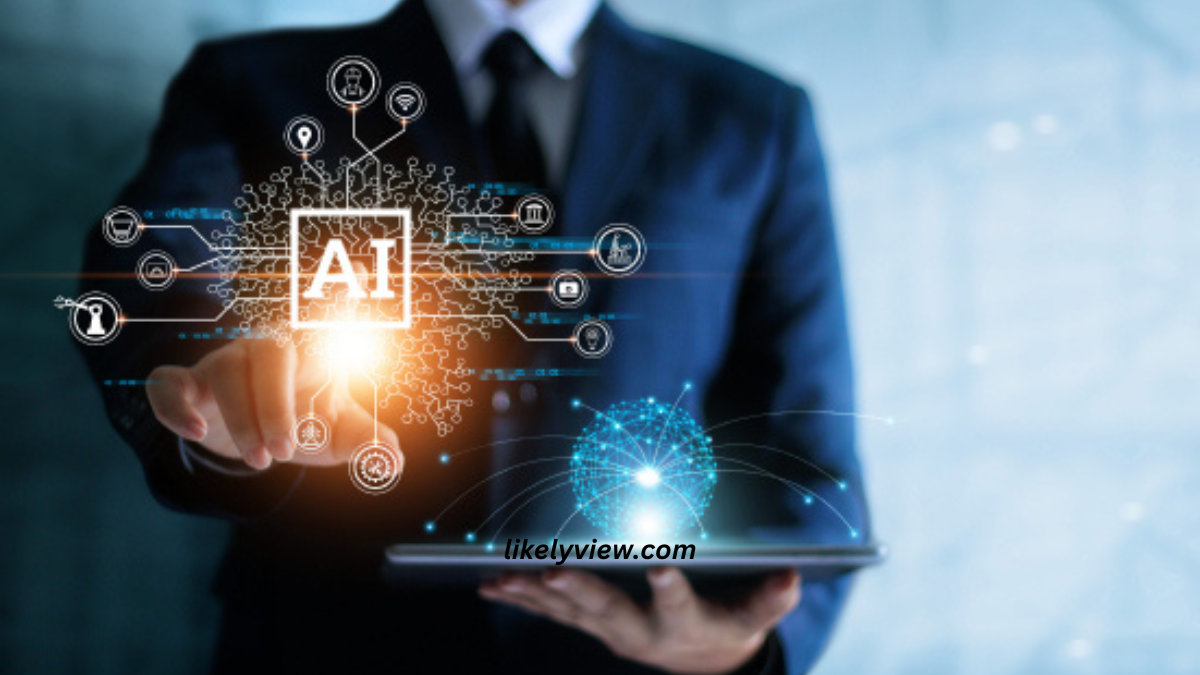The Good AI: A Modern Marvel with Limitless Potential

the good ai Artificial Intelligence (AI) has often been depicted in a dystopian light, with endless discussions about its risks and ethical quandaries. Yet, amid these debates, there exists a facet of AI that is nothing short of revolutionary—what we call “The Good AI.” This article delves into what constitutes good AI, its positive impacts, the ethical frameworks guiding its development, and its promising future.
What Defines the good ai?

When we talk about the good ai, we’re referring to systems designed and implemented to benefit humanity. It’s not just about creating machines that perform tasks efficiently; it’s about ensuring these machines operate in ways that are ethical, transparent, and supportive of human welfare the good ai.
Good AI stands out for its ability to enhance our lives in meaningful ways. For instance, AI that aids in medical diagnostics can lead to quicker and more accurate diagnoses, thereby saving lives. Similarly, AI-driven educational tools can provide personalized learning experiences, helping students grasp complex concepts at their own pace. But what defines good AI is a combination of reliability, fairness, and transparency the good ai.
Reliability in AI means that these systems work consistently as expected. They must be able to handle a variety of tasks without failing, which requires rigorous testing and validation. Fairness ensures that AI systems do not propagate biases or reinforce stereotypes. Transparency involves clear communication about how these systems work and how decisions are made, fostering trust and understanding between humans and machines the good ai.
The Positive Impact of the good ai on Society
Good AI has made significant strides in various sectors, proving its value and potential. One of the most notable areas is healthcare. AI systems are now able to analyze medical data with incredible precision, assisting doctors in diagnosing diseases early and crafting personalized treatment plans. For instance, AI algorithms can sift through vast amounts of medical literature and patient records to identify potential health risks and suggest preventive measures. This not only enhances patient outcomes but also alleviates the burden on healthcare professionals the good ai.
In education, AI has transformed the learning experience. Adaptive learning platforms leverage AI to assess a student’s strengths and weaknesses, tailoring educational content to meet individual needs. This personalized approach helps students learn more effectively and at their own pace. Additionally, AI-powered tools can assist teachers by automating administrative tasks, thus allowing them to focus more on interactive and meaningful teaching the good ai.
The benefits extend to environmental sustainability as well. AI is being employed to monitor and analyze environmental data, helping scientists understand climate change and develop strategies to combat it. AI systems can track wildlife populations, predict natural disasters, and optimize resource management, contributing to a healthier planet for future generations.
Ethical Considerations in Developing the good ai
The development of good AI is intrinsically linked to its ethical implications. As AI systems become more integrated into our daily lives, ensuring that they operate within ethical boundaries becomes crucial. This involves addressing issues like data privacy, algorithmic bias, and accountability the good ai.
Data privacy is a major concern when it comes to AI. Good AI systems must handle personal information with the utmost care, adhering to stringent privacy laws and guidelines. This means implementing robust data protection measures and being transparent about data usage the good ai.
Algorithmic bias is another critical issue. AI systems are only as unbiased as the data they are trained on. If the training data contains biases, the AI is likely to perpetuate these biases. Addressing this requires ongoing efforts to ensure diverse and representative data and implementing mechanisms to detect and correct biases in AI models the good ai.
Accountability is also essential. Developers and organizations must be clear about who is responsible for the decisions made by AI systems. This includes establishing protocols for auditing and evaluating AI systems to ensure they adhere to ethical standards and are used responsibly the good ai.
The Future of Good AI: Trends and Innovations
Looking ahead, the future of good AI is filled with exciting possibilities. One trend that stands out is the increasing emphasis on explainable AI (XAI). As AI systems become more complex, understanding how they make decisions is becoming increasingly important. Explainable AI aims to make the decision-making process of AI systems more transparent and understandable to humans. This not only helps build trust but also allows for better oversight and improvement of AI systems.
Another significant trend is the integration of AI with other emerging technologies. For instance, combining AI with blockchain technology can enhance data security and transparency. AI can also be integrated with Internet of Things (IoT) devices to create smarter and more responsive environments. These innovations promise to further extend the positive impacts of AI across various domains.
Moreover, there is a growing focus on ethical AI development and governance. Organizations and governments are beginning to establish frameworks and guidelines for the responsible development and deployment of AI. These efforts aim to ensure that AI systems are designed and used in ways that align with societal values and promote overall well-being.
Challenges in Implementing Good AI
Despite its many benefits, the implementation of good AI is not without challenges. One major hurdle is the need for substantial resources. Developing and deploying AI systems requires significant investment in technology, data, and expertise. Smaller organizations or those in developing regions may struggle to access these resources, potentially widening the technology gap.
Another challenge is the rapid pace of AI advancements. Keeping up with the latest developments and ensuring that AI systems remain current and effective requires continuous research and adaptation. This can be particularly challenging for organizations that lack dedicated AI teams or research capabilities.
Furthermore, there is the issue of societal readiness. As AI technologies become more pervasive, societies must be prepared to adapt to changes in the job market, education systems, and ethical norms. This requires proactive measures to address potential disruptions and ensure that the benefits of AI are widely distributed.
The Role of Policy and Regulation in Good AI
Effective policy and regulation play a crucial role in ensuring the development and deployment of good AI. Governments and regulatory bodies are increasingly recognizing the need for frameworks that address the unique challenges posed by AI technologies. These frameworks aim to balance innovation with protection, ensuring that AI systems are developed responsibly and used ethically.
Policies related to data protection, algorithmic transparency, and accountability are essential for fostering trust in AI systems. Additionally, regulations that promote research and development in AI ethics can help guide the industry toward more responsible practices. Collaboration between policymakers, researchers, and industry leaders is key to creating effective and comprehensive AI regulations.
Case Studies of Good AI in Action
To illustrate the impact of good AI, let’s look at a few case studies where AI technologies have made a significant difference.
One notable example is IBM’s Watson, which has been used in various healthcare settings to assist doctors in diagnosing and treating cancer. Watson analyzes vast amounts of medical literature and patient data to provide recommendations that help doctors make informed decisions. This has led to improved patient outcomes and more personalized treatment plans.
Another case is the use of AI in agriculture. Systems like the ones developed by the startup Taranis use AI to analyze satellite images and identify potential issues with crops. This allows farmers to take timely action to address problems such as pests or diseases, ultimately leading to better crop yields and more efficient farming practices.
These examples highlight how good AI can be applied to real-world problems, providing tangible benefits and demonstrating its potential to drive positive change.
Conclusion
Good AI represents a powerful force for good in the modern world. By focusing on reliability, fairness, and transparency, AI systems can enhance various aspects of human life, from healthcare and education to environmental sustainability. However, the development and deployment of good AI require careful consideration of ethical issues and ongoing efforts to address challenges.
As we look to the future, the continued evolution of AI promises even greater opportunities for positive impact. By fostering innovation while adhering to ethical principles and robust regulations, we can ensure that AI remains a force for good, driving progress and improving the quality of life for people around the globe.
The journey toward achieving the full potential of good AI is ongoing, and it is up to all of us—developers, policymakers, and society at large—to navigate this path responsibly and thoughtfully. The possibilities are endless, and with the right approach, AI can indeed be a remarkable ally in our quest for a better world.











